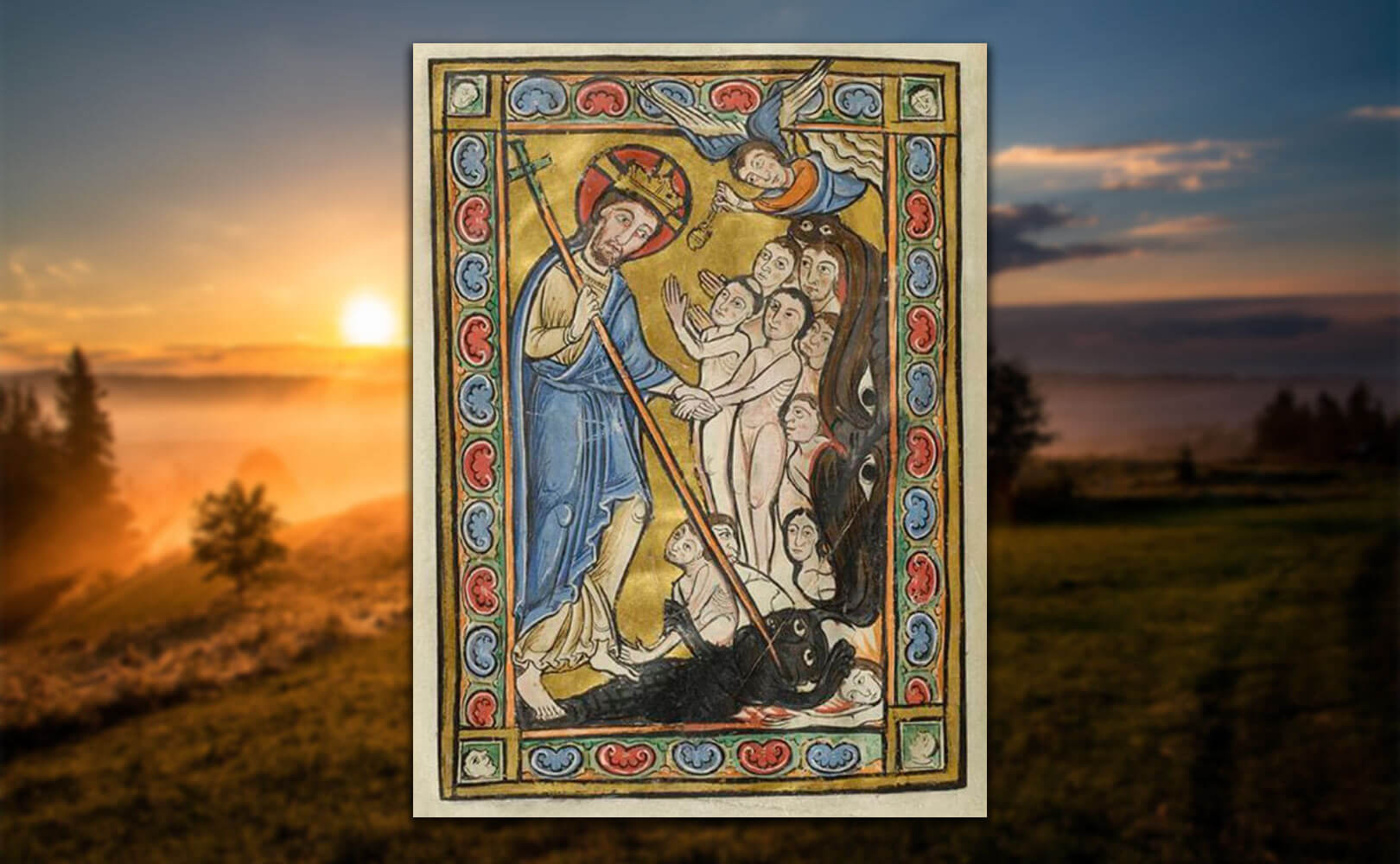This post originally appeared yesterday at the author’s blog. We encourage you to visit her there, where she writes about prayer, truth, beauty, and goodness, and her work in sacred art.
The “O Antiphon” for December 20 – the Antiphon for the Magnificat for Vespers of the day – “Key of David”.
“…To open the blind eyes, to bring out the prisoners from the prison, and them that sit in darkness out of the prison house.”
O Clavis David, et sceptrum domus Israel; qui aperis, et nemo claudit; claudis, et nemo aperit:
Veni, et educ vinctum de domo carceris, sedentem in tenebris, et umbra mortis.
O Key of David and sceptre of the House of Israel; you open and no one can shut; you shut and no one can open:
Come and lead the prisoners from the prison house, those who dwell in darkness and the shadow of death.
“I will place on his shoulder the key of the house of David; he shall open, and no one shall shut; he shall shut, and no one shall open.” Isaiah 22:22
“His authority shall grow continually, and there shall be endless peace for the throne of David and his kingdom. He will establish and uphold it with justice and with righteousness from this time onwards and for evermore.” Isaiah 9:7
“…To open the blind eyes, to bring out the prisoners from the prison, and them that sit in darkness out of the prison house.” Isaiah 42:7
“But woe to you, scribes and Pharisees, hypocrites! For you lock people out of the kingdom of heaven. For you do not go in yourselves, and when others are going in, you stop them.” Matt 23:13-14
The key is one of the traditional symbols of kingly power and authority. Christ, the anointed one, is the heir of David and possessor of the kingdom. All power and authority was given to him after the resurrection. After His death on the Cross, He travels to the place where Adam and Eve, and all the prophets are held and releases them.
The Key of David unlocks not only the road to heaven, but the secrets concealed on earth.
The O Antiphons date to at least the year 800, and are found in a manuscript called the Exeter Book where the O Clavis David is followed by this poem in Anglo Saxon:
O thou Ruler and righteous King,
who guards the locks, who opens life
and the blessed way on high, and to others denies
the bright longed-for path, if their deeds have not earned it;
truly, we speak these words in need,
and entreat that he who made mankind…
[this next line is damaged]
…of sorrowful things, for we in prison
sit sorrowing, hoping for the sun,
for when the Lord of life will open light to us,
become for us a source of strength in spirit,
and enfold our feeble knowledge in splendour,
and make us worthy, that he may admit us to glory,
who have had to come, wretchedly,
into this constraining world, cut off from our homeland.
The blogger, “Clerk of Oxford,” writes in a fascinating post about the antiphon’s ancient history, and it’s multi-layered symbolism:
This poem takes its main inspiration from the final line of the antiphon: ‘those who sit in darkness and the shadow of death’. Its interest is in light and darkness, and in the language of secrecy and hidden things – especially geryne, ‘mystery’.
…
The Key of David is to unlock not only the road to heaven, but the secrets concealed on earth. He will give us strength in mode, ‘mind, spirit’, and tydre gewitt tire bewinde, ‘enfold our frail wits in splendour’, as if limited human understanding is to be entirely wrapped and wound within limitless divine wisdom.
…
What is unlocked by the Key is ‘light’, and in describing mankind as sunnan wenað, ‘hoping for the sun’, this lyric makes use of the Son/sun wordplay I mentioned recently – probably the earliest surviving example of the device in English poetry. This poem is about the opening of hidden knowledge, and appropriately for a poem, this opening is connected specifically to poetry itself, the bringing to light the truth of the witgena woðsong, ‘the prophets’ resounding song’.
We sit in darkness, waiting for the light
It is not an accident that this Antiphon was selected for this particular day, this particular night. December 20th is the last and longest night of the old dying year. In the ancient monastic tradition, Vespers was sung at the time of the lighting of lamps – it is dark now (in the Northern Hemisphere) at 5 pm. We are all longing for the return of the bright and lovely days. And Though we will hardly notice it, tonight is the beginning of that long climb back into the sun. We’re through the worst of it tonight.
And of course we can, if we choose… if we only choose… turn in our woeful state to Christ in repentance and tears. We sit in a long darkness and wait for the light to dawn.


